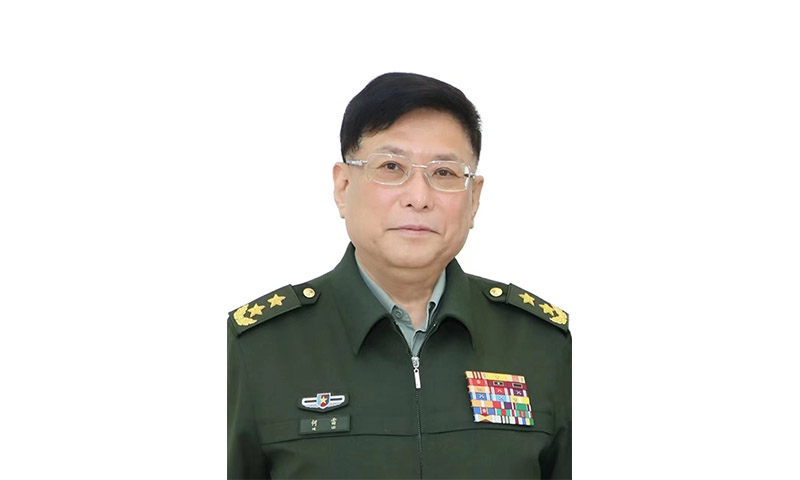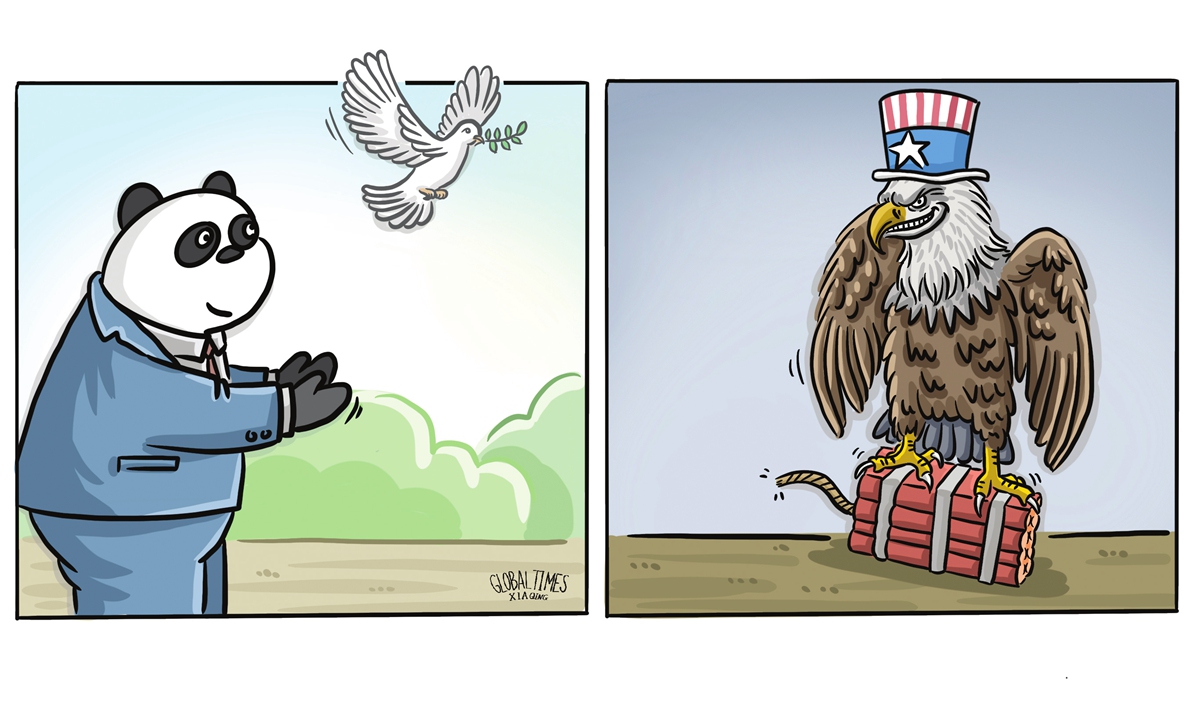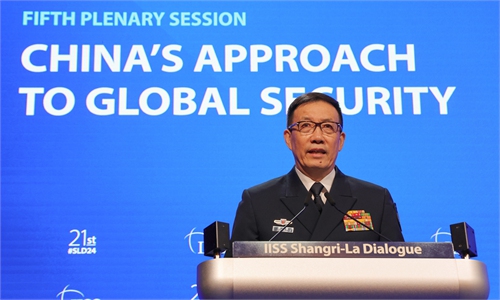
Lieutenant General He Lei Photo: Courtesy of He Lei
A country's fundamental concept and outlook on global security and stability determines its fundamental policy and practical measures toward maintaining world peace. In today's world, China and the US bear great responsibilities for regional and global peace and stability: They play an irreplaceable and decisive role. However, due to the differences in the two countries' fundamental interests, social systems, development paths, as well as histories and cultures, China and the US have completely different views on global security. From Friday to Sunday, the two countries had a fierce collision and contest around the visions of global security at the 21st Shangri-La Dialogue in Singapore.
On Sunday morning, Chinese Defense Minister Dong Jun delivered a speech on China's approach to global security. The remarks deeply elaborated and widely publicized China's global security vision in the new era proposed by President Xi Jinping.
Dong stressed that China values peace and harmony, and is committed to pursuing common security, equality and mutual respect, openness and inclusiveness, as well as safeguarding its core interests. China is willing to work with all parties to protect the legitimate security interests of all countries, jointly build a more just and equitable international order, advance open and substantive defense cooperation and strengthen security governance in emerging areas to strive for new progress in regional security cooperation, according to Dong.

Illustration: Xia Qing/Global Times
In the more than two years since China's Global Security Initiative (GSI) was proposed, it has provided important public security goods to enhance global security governance and respond to international security challenges. It has important theoretical value and practical significance for achieving the United Nations Sustainable Development Goals, maintaining world peace and security, and promoting the progress of human civilization, which has been recognized and supported by more and more countries and international organizations in the world. During this year's Shangri-La Dialogue, "China's GSI" became a buzzword discussed by participants.
US Defense Secretary Lloyd Austin's speeches at the Shangri-La Dialogue last year and this year clearly reflected the US' view on global security. Last year, his remarks highlighted that the US is enhancing its partnerships in Asia-Pacific to "reinforce peace and prosperity in this region." How does the US achieve this? This answer was embodied in Austin's speech on Saturday.
The title of the speech given by Austin at the conference is "United States' Strategic Partnerships in the Indo-Pacific," which essentially means relying on strengthening and expanding alliance partnerships, promoting AUKUS, Quad, and other "small cliques," forming an "Asia-Pacific version of NATO," and comprehensively containing and suppressing China, its main strategic rival. The fact is that this approach has not brought peace and security to the Asia-Pacific region, but rather instability and disunity, and will even lead to conflict and war. It can be said that Austin's speeches at these two dialogues fully reflect the US global security philosophy and policy.
On February 17, US Secretary of State Antony Blinken delivered a speech at the Munich Security Conference, proposing the famous "table and menu theory," which also interprets and confirms the US global security concept from another perspective. Blinken stated that in the international system, if you're not at the table in the international system, you're going to be on the menu. This is a flawed security concept with a typical cold war mentality and a belief in a law of the jungle system.
China has always advocated that all sovereign countries in the world should be treated equally and respected. No country should interfere in the internal affairs of another. China firmly opposes the cold war mentality and bloc confrontation, while advocating for peaceful coexistence and win-win cooperation among nations. This is the only way peace, independence and tranquility can be achieved.
The starkly different global security views between China and the US make it clear which one aligns with the fundamental interests and reasonable security concerns of most countries and is conducive to regional and global peace and stability. The answer is obvious.
The biggest difference between the Biden administration and the Trump administration in foreign strategy is that the Trump administration emphasized "America First," unilaterally withdrawing from agreements if things did not go its way. The Biden administration emphasizes bloc confrontation, focusing on consolidating and expanding various alliance partnerships and even pushing other countries to the front lines in proxy wars.
However, whether it is "America First" or bloc confrontation, the goal is to ensure and strengthen the US' hegemonic position, to contain, suppress, or even defeat, strategic rivals. The only difference lies in the strategies and methods employed.
The author is former vice president of the Academy of Military Science of the People's Liberation Army. opinion@globaltimes.com.cn



